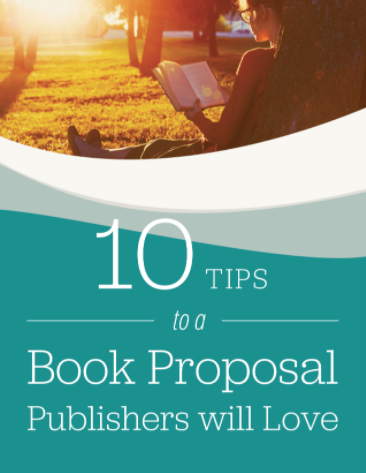
While there are entire books on how to write a book proposal (many of them excellent), here is a short version.
When Do You Need a Book Proposal and What Must it Address?
When do you need a book proposal? If you are looking to interest literary agents in representing your book to traditional publishers, or you wish to query traditional publishers directly, they will want to see a compelling book proposal that demonstrates that:
- Your proposed book fills a need for a large audience that very much wants what the book has to offer.
- The book is fresh in some way (new research, a new perspective or paradigm, a fresh voice, unique features, etc.).
- You have a large platform from which you will reach prospective book buyers. This can include social media, email list, public speaking, teaching/training, traditional PR and other means.
If you plan to self publish, you do not need a book proposal. However, some elements of a book proposal (such as market research, competitive analysis and promotion plan, for example) can be very helpful in developing a marketable book and reaching readers with it!
What is a Nonfiction Book Proposal?
A nonfiction book proposal is essentially a pitch to publishers to publish your book. It is also sent to agents to convince them to represent your book to publishers.
General elements of a book proposal include a catchy title; making a compelling case for the book; describing the target market (and size of that market); sharing the structure, content and features of the book; comparing your proposed book to other books similar in topic and/or market–what’s similar, different and how will your book compete); featuring your expertise and credentials, as well as your reach/platform/following, both online and offline–making a compelling case for how you will sell large numbers of books (your marketing or promotion plan, which should be based on things you are already doing to reach your market); providing sample material to demonstrate your writing chops, voice and content.
How to Write a Book Proposal in 10 Steps
You do not have to necessarily do the steps below in this order but this order works well in most cases. Do feel free to switch around the steps.
1. Get crystal clear about the book you are writing: your vision, your goals and the audience you want to reach.
2. Research competitive and complementary books. This will help you decide how your book stands out on the marketplace. Or it may help you realize you need to develop it more to stand out. Perhaps you can offer a new perspective, fill a need that’s not currently filled, write to a specific niche market, etc. It is a good sign to see books like yours in the marketplace. It means there is a market! And if there are bestsellers, that’s even better. Eventually, you will use this information to write the competing books section.
3. Clarify features, tone and what information you want to cover.
4. Organize the book: Create an outline or mind-map with details about what goes into your chapters. Eventually, you’ll polish this and turn it into your chapter outlines or summaries. This blog post on how to write chapter outlines will help.
5. Choose and write your sample chapters: I generally have my clients write a first draft of sample chapter before much of the proposal so they get a stronger sense of their book (and whether they are on track). Here’s a blog post that helps you choose sample chapters.
6. Research Markets for the Book: I assume you have a pretty solid idea of the target market–or what I call your “core readers”–before you begin writing the sample chapters. They may be people you work with as clients. They may be you. However, you’ll need to do a bit more research when you write this section. Also, if you don’t know much about your market, do this research before you begin writing. This blog post on researching markets for the book will help. You will also want to include secondary markets for the book in your book proposal.
7. Write your about the author section: You may want to combine this section with author platform, though you may prefer to have your author platform in a separate section. Author platform clarifies how many people you reach annually, who they are and how you reach them. Also include your credentials. This section can be a tad playful if the book itself is written in a playful tone.
8. Write your promotion plan: This is all about how you will get the book into the hands of readers. Publishers do not want to see “pie in the sky” ideas. If you plan to offer teleseminars, webinars or workshops, you need to start offering them now and include them in your author platform section. Likewise, if you do little public speaking or publicity, publishers will read any promotion plans in these areas with a good deal of skepticism.
Note: For a publisher that publishes professional or academic books, this section may not be as crucial (or may not need to be as extensive). However, that is not always the case.
You can read this blog post for more about what publishers expect in a book promotion plan.
9. Write your overview: I often suggest writing the overview last (or writing a rough version and allowing time to fine-tune it. This section will decide whether a literary agent or publisher actually reads your proposal. You need to “hook” them with an exciting opening that makes a case for your book from the get-go.
Your book “hook” can be about the large size of the audience, the desperate need your target market has for this information, the size of your platform, people’s fascination with the subject, etc. Your overview needs to clarify who the book is for, why they will buy it, what readers will learn, how they will benefit, why you are the person to write the book and more.
10. Read these articles: There is more to know about a book proposal–small sections like specifications and delivery, spin-offs, table of contents–as well as details about formatting a book proposal. The following articles will help you with nuances but I also recommend purchasing a book on how to write a book proposal. My favorite is Michael Larsen’s How to Write a Book Proposal.
How to Write a Book Proposal: Articles on How to Find and Choose a Literary Agent, Advice, Tips and Other Important Information
Here are other articles that will help you with how to write a book proposal and get published:
* How to Find a Literary Agent
* Literary Agents’ Advice on When to Write a Short Book Proposal (Huffington Post)
* How to Write a Short Book Proposal: An Interview with Literary Agent Deirdre Mullane
* Book Proposal Advice from Literary Agent Miriam Altshuler
* How to Write a Book Proposal: Resources Needed Section: Do you really need it?
* How to Make Sure Your Book Proposal Gets Read
Now, you may be wondering how to get professional help with your book proposal.
How to Hire Support to Write a Winning Book Proposal
Lisa and her colleagues will work with you in the way that suits your needs. You can:
- Write the book proposal with guidance, feedback and editing by Lisa.
- Write the majority of the book proposal, but have Lisa write challenging parts of it, such as the marketing plan or the competitive analysis.
- Have your book proposal written for you, but you can write the sample chapters (and possibly) chapter outlines.
- Have the book proposal and sample chapters ghostwritten. Lisa has a select group of ghostwriting partners from skilled authors who can meet a moderate budget to authors of 20 (plus) books with by-lines in the Washington Post, the New York Times and major women’s magazines. She will help you choose the individual who best meets your needs
Contact Lisa to see how you can write a winning book proposal.
Write a Book Proposal–FAQ
“I already wrote my book proposal. Can I just get feedback?”
One of the things that Lisa does as a Writing Coach is provide feedback on proposals. If there are sections that need to be expanded or polished, Lisa can provide expert guidance; she will point out what the proposal needs to be comprehensive and attractive to literary agents and publishers.
“My book proposal was rejected by a number of literary agents.” Or “I never heard back from the agents I contacted. What am I doing wrong?”
First, did you send a query letter or meet the agent before you sent your book proposal? An unsolicited proposal will go right into the slush pile (to be read by an intern when, and if, work lets up) or the circular file (their trash can), or, if you’re really lucky, the agent may save you time with an outright rejection. Send a query letter or look to meet agents and pitch your book in person at a conference, first. Then, when you send the proposal, you can write “Requested materials enclosed” in the bottom left corner to remind the agents that they requested the book proposal.
Second, your proposal may not be thorough. Read Michael Larsen’s How to Write a Book Proposal for clear instructions on what you need to include in your book proposal and how to write each section. You can also hire Lisa to provide feedback on your book proposal and how to improve it.
Third, it’s a competitive market out there. Your book doesn’t just need to stand out—publishers need to be convinced that you will be great at promoting your book. That means you need to develop a following. Lisa tailors her brainstorming techniques to specific projects and helps clients find innovative ways to create an audience. She and her team of writing coaches can help you create a powerful media presence through social media on the Internet, large mailing lists, publication in major magazines and TV and radio appearances.
How do I research the potential interest for my book?
Check Amazon.com to determine how many books are published on your topic. Look inside the book while on Amazon; check out the table of contents and features of the book. Determine how yours will be different in content, tone and features. You may also want to go to a real live book store; open the books and skim or even buy them. Get information on your potential audience by watching who picks up those books. Also, does your background make you an expert on this topic; what do you have to offer that is new to the field?













